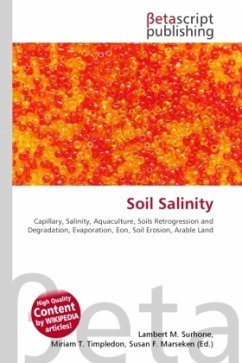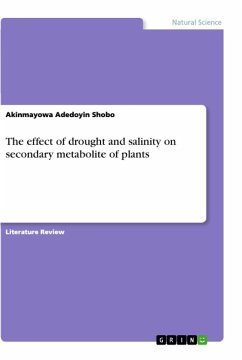High Quality Content by WIKIPEDIA articles! Salt is a natural element of soils and water. The ions responsible for salinization are: Na+, K+, Ca2+, Mg2+ and Cl-. As the Na+ (sodium) predominates, soils can become sodic. Sodic soils present particular challenges because they tend to have very poor structure which limits or prevents water infiltration and drainage. Over eons, as soil minerals weather and release salts, these salts are flushed or leached out of the soil by drainage water in areas with sufficient precipitation. In addition to mineral weathering, salts are also deposited via dust and precipitation. In dry regions salts may accumulate, leading to naturally saline soils. This is the case, for example, in large parts of Australia. Human practices can increase the salinity of soils by the addition of salts in irrigation water. Proper irrigation management can prevent salt accumulation by providing adequate drainage water to leach added salts from the soil.
Bitte wählen Sie Ihr Anliegen aus.
Rechnungen
Retourenschein anfordern
Bestellstatus
Storno








